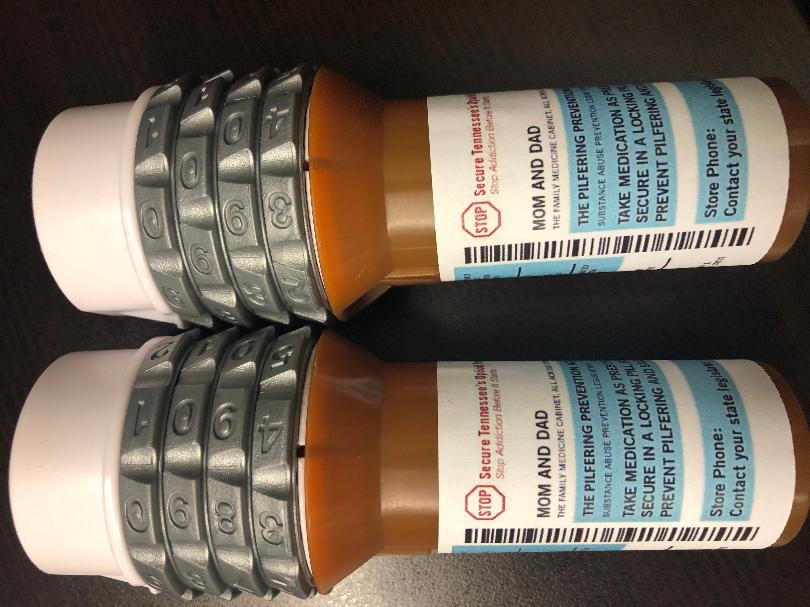New Tennessee legislation hopes to tackle teenage prescription opioid use by keeping pill bottles under lock and key–literally.
The “Pilfering Prevention Act” (SB 475/HB364)—introduced by State Senator Richard Briggs and Representative Matthew Hill on February 4, with the support of the STOP Coalition TN—would require Schedule II opioids, Schedule III stimulants, and Schedule IV benzodiazepine prescriptions that exceed a three-day supply to be issued in a vial that is lockable by key or code.
Patients would be able to opt out of using the bottles, though such a request would have to be submitted in writing. Manufacturers, rather than patients, would accommodate the costs of the expensive containers.
2017 saw the highest number of overdose deaths in Tennessee on record, totaling 1,776 people. According to the Tennessee Department of Health, prescription opioids were the most common drug associated with overdose deaths.
“There’s not going to be a silver bullet… it’s going to be a generation before we can whoop this thing,” Sen. Richard Briggs told WBIR, a Knoxville news channel. “But we’ve got to start somewhere.” And for him, that somewhere is “the family medicine cabinet,” a source that he says is where teens’ “drug addiction starts, and often where accidental overdoses occur.”
Briggs is correct: there is not a singular solution. Most people begin using pharmaceutical opioids without having received a prescription, instead sourcing them from friends and relatives. But only 4.4 percent of people who use unprescribed drugs did not receive consent from the friend or relative, according to SAMHSA. It is also the case that nationwide, overdose deaths are increasing primarily because of illicit opioid use—often from batches of heroin that are cut with fentanyl.
The vast majority of people who use pharmaceutical opioids without a prescription do not end up using heroin, according to a 2013 SAMHSA study.
Locked bottles may well prevent some teens from dipping into family members’ prescriptions. But if this happens, there is no reason why many wouldn’t just find drugs elsewhere. Targeting supply without addressing the reasons why people use drugs in the first place can never provide the whole solution to keep people safer and afford them agency.
Photograph: Courtesy of Senator Briggs, via WVLT 8





Show Comments